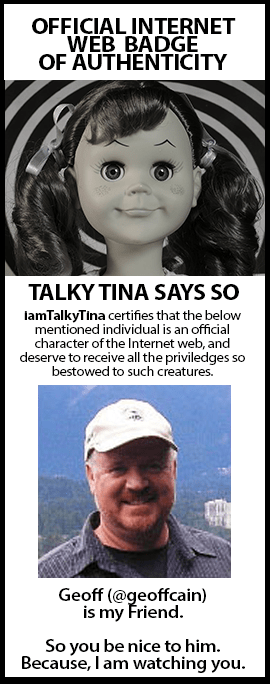 For myself, “open” covers open pedagogy, open education resources, and open textbooks. I think open education is one of the most significant things to hit education in 500 years – probably since the invention or the wide-spread use of cheap paper. Open education is all about increasing the access to education and overcoming the barriers of geography, culture, and economics.
For myself, “open” covers open pedagogy, open education resources, and open textbooks. I think open education is one of the most significant things to hit education in 500 years – probably since the invention or the wide-spread use of cheap paper. Open education is all about increasing the access to education and overcoming the barriers of geography, culture, and economics.
I currently teach Adult Basic Education. Since the 90s, I have been involved in teaching and education support (tutoring, writing labs, etc.) and have taught developmental English. Open education or open pedagogy allows me to facilitate my students learning in such a way that they become independent learners. The syllabus becomes a negotiated contract, and the students from the very beginning of class, are brought into the process of mapping out where they are going to go though out the quarter. ABE students are taking courses for a number of reasons: some need to pass the GED, some are looking for HS or college credit to move on to a 2 year degree, some take classes as a step in finding their path. An open pedagogy allows me to help students understand that they have choices and that they are in charge of their learning. They are not just in a “class” but in a network of learners, creators, and professionals who will help them learn far beyond what we are doing in the physical building. Many of these students come from backgrounds and institutions where their own agency has not been respected or fostered. An open pedagogy allows us to teach students how to learn – how to make the critical connections that will allow them to be successful in college, their personal and professional lives.
Open education resources (OER) include open textbooks. ABE students are often the most vulnerable of the student population. Using peer-reviewed, open education resources or open textbooks allows me to lower the cost of education for students who are often at the mercy of their financial aide situation or lack there of. Open textbooks allow me to reuse and remix materials according to the needs of the students rather than hoping that we have found a textbook will actually work for them. I also am using open tools like WordPress.
The Pacific Northwest is growing fast. There are a 1000 people a month moving to Seattle each month. This growth is increasing rents and the cost of living, and so I have a moral obligation to use an open textbook (high quality, peer-reviewed that meets the course outcomes).
For a few years I was not teaching but working in the admin side of education as an instructional designer and director of academic technology. My previous teaching (and instructional design) was heavily influenced by George Siemens and Stephen Downes’ MOOC, Connectivism and Connective Knowledge, and Cormier’s Rhizomatic Education: Curriculum as Community.





Thanks for your reflections Geoff! Good to see you again in a MOOC. it’s been something like 10 years (!?!) since we first connected in this format.
Like you, I see a moral imperative in openness. Not just in terms of textbooks, but increasingly in algorithms and knowledge access. If we have openness, we have a say in our future. Without openness, the control structures are beyond our ability to influence.
“Many of these students come from backgrounds and institutions where their own agency has not been respected or fostered.”
I’ve been thinking about this a lot lately – but more at the individual level. What makes a teacher or administrator think that this is successful learning? How do you begin a conversation that challenges the kind of pedagogies that steal agency? How do you respect the agency of an educator who is not respecting student agency?